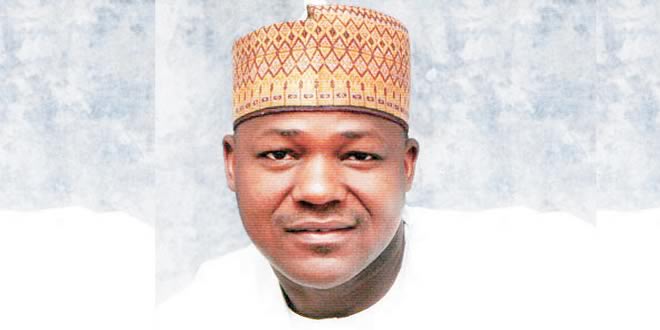The Speaker, House of Representatives, Mr Yakubu Dogara, said the National Assembly was on the verge of completing the Federal Competition Commission Bill which aimed at protecting consumers and enlarging the market.
Dogara made the announcement at the 14th Daily Trust Dialogue which had as its theme “Beyond recession: Towards a resilient economy.”
The bill aims at repealing the Consumer Protection Act, 2004 and establishing the Federal Competition and Consumer Protection Commission.
It also provides for the establishment of a Competition and Consumer Protection Commission Tribunal to adjudicate over market competition and consumer matters.
It’s advantages cut across economic efficiency, consumer choice boost, protection of small and intermediate firms in the market and protection of foreign direct investments while enhancing local firms to compete internationally.
“Only innovation can sustain the coming economic rebound. Innovation is so central to a competitive economy. Anyone who out-innovate you will out-compete you.
“Our post recession markets must be competitive if they must yield to their full potentials. Undertakings must compete and must not collude.
“The relationship between competition and innovation is such that if you do not compete, you can’t innovate and if you don’t innovate, you cannot compete.
“To this end, the National Assembly will soon complete work on Federal Competition Commission Bill.
“A Bill I am personally promoting as the Sponsor which if signed into law will lead to efficient allocation of resources and deliver allocative, dynamic and productive efficiencies in our markets,” he said.
Dogara urged the government to increase its effort to combat militancy, kidnapping and other kinds of criminal and terrorist acts which scared away foreign investors.
“Can we truly begin to talk of ease of doing business in Nigeria when you can be kidnapped or killed at will by mindless criminals or terrorists otherwise known as unidentified gunmen?
“Can we find an investor out there who is willing to do business with his life?
“No group makes rational choices and decisions like investors. If an investor is driven by fear not to set foot in Nigeria, the same fear will drive him not to send his money here.
“Terrorism, kidnapping, militancy and sundry acts of criminality are worst enemies of our people, which Mr President must crush, just as he is crushing corruption,” he said.
Dogara reiterated the need to have a monetary policy that works in harmony with fiscal policy.
He pointed out that the current Monetary Policy Rate has made loanable funds inaccessible and unaffordable to operators in the real sectors of the economy, particularly manufacturing.
Thus, he urged the Central Bank of Nigeria to reconsider the present monetary policy rate.
The speaker also advised the economic policy makers to review the country’s tax policy which he said was under performing its potentials.
” In Nigeria, the tax effort is very low. At the federal level, the share of non-oil revenue, including independent revenue in the GDP, is about 10 per cent or less.
“Tax revenues have not fared better at the state and local government levels. These must be improved upon,” he said.
Dogara said that to have a resilient economy, visionary leadership and good governance was key.
He said good governance and leadership would tackle corruption; lead to diversification of the economy and give agriculture, solid minerals their rightful places in the Nigerian economy.
“Leadership that teaches us when we look at a tree to see tables, chairs and beds not only fruits, leaves and shade. When we witness crisis, to see the opportunity in it and not want, destitution and despondency.
“Leadership that compels us when we look at a cow to see shoes not only meat and when we have a seed to see a forest and not only a tree or fruits.
“Leadership that will simply eliminate contractors liability by issuing bonds, thereby saving and restoring lost jobs, engendering liquidity in the system and completion of critical infrastructural projects,” he said. (NAN)


